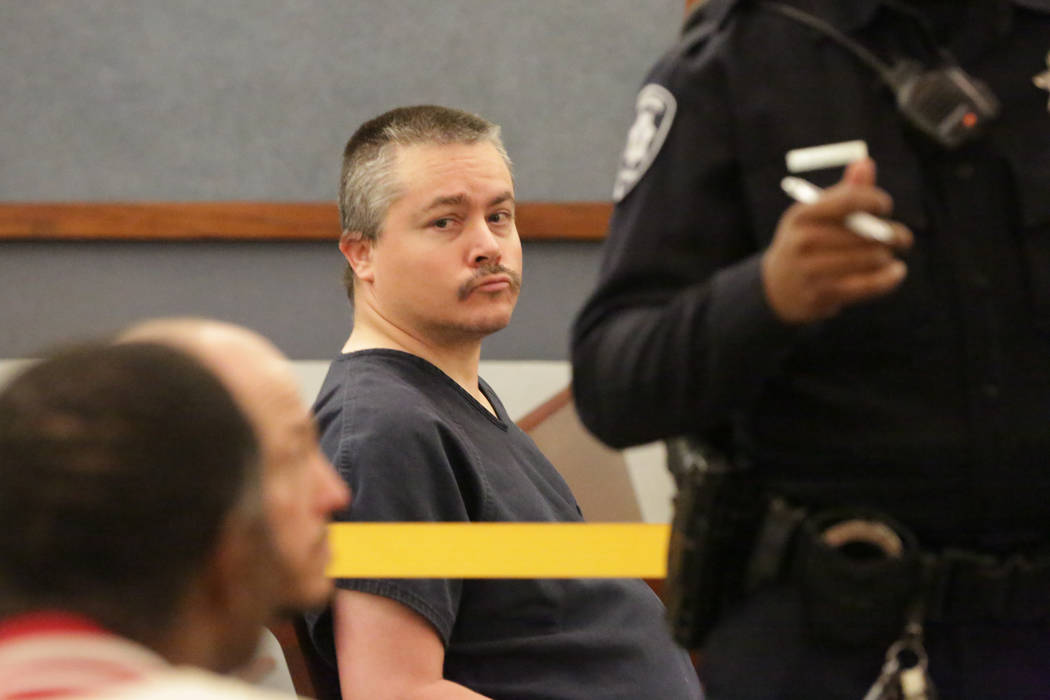Accused Venetian Exec Killer Anthony Wrobel Dodges Possible Death Penalty Push as Prosecutors Prepare for Trial
Posted on: August 22, 2018, 06:30h.
Last updated on: August 22, 2018, 06:15h.
Anthony Wrobel, the man charged in the murder and attempted murder of two prominent Venetian casino executives on April 15, won’t face the death penalty when he has his day in court.

Clark County prosecutor Pamela Weckerly says that the government won’t seek the ultimate punishment for Wrobel, who is accused of shooting both Mia Banks — who was killed in the attack — and Hector Rodriguez, who was seriously wounded, but has been recovering.
Could Die in Prison
Wrobel is facing counts of first-degree murder with a deadly weapon, attempted murder with a deadly weapon, and battery with a deadly weapon resulting in substantial bodily harm. While the death penalty will no longer be on the table, he could still receive life in prison without parole if he is convicted on those counts.
According to an AP report, Wrobel was silent while Weckerly and court-appointed defense counsel Joseph Abood informed the judge of the decision. He has pleaded not guilty to all charges, despite a multitude of surveillance as evidence and first-person witnesses to the crime. Clark County District Court Judge Douglas Herndon has set his trial for October 2019.
Clark County District Attorney Steve Wolfson and his team of prosecutors considered whether or not to seek the death penalty, saying that factors such as the defendant’s lack of a prior criminal history steered them towards life in prison rather than capital punishment.
One Angry Man
Police say that Wrobel shot Banks and Rodriguez while they were seated during a company picnic. According to investigators, Wrobel also left a one-page note on his kitchen table, in which he declared his anger towards Venetian casino management, leading officials to categorize the shooting was an act of workplace violence.
After the shooting, Wrobel left his car at McCarran International Airport, then drove another car to Utah and later Texas. Four days after the attack, he was arrested in Texas while sleeping in a car with a stolen Utah license plate. Wrobel had a 9mm handgun with him, but surrendered without incident.
Police say that Wrobel acted alone in the shooting.
Banks was Las Vegas Sands’ vice president of casino operations, and had worked at the Venetian since 1999. She was a 54-year-old mother of two. Rodriguez is the executive director of table games at the same casino.
States Facing Legal Challenges to Lethal Injection Executions
While prosecutors did not cite the issue as a factor in their decision not to seek the death penalty in this case, Nevada is one of several states that has faced opposition to the use of specific — and sometimes never-before-tried — drug cocktails in lethal injections.
Nevada Death Row inmate Scott Dozier was set to be executed on July 11. But that plan was postponed for at least two months after drug manufacturer Alvogen sued, saying the state had illegitimately acquired the drug midazolam, a sedative that was to be part of a three-drug combination to be used in the execution.
Clark County District Judge Elizabeth Gonzalez ruled in favor of the company, granting a temporary restraining order. The state and the drug maker are scheduled to meet in court for another hearing on September 10.
The drug cocktail was considered particularly controversial because it included fentanyl, as it would have been the first time the opioid was used in an execution. Fentanyl was later utilized as part of a four-drug combination in a lethal injection in Nebraska on August 14, again over the legal objections of a company that believed it had manufactured other drugs in the cocktail.
No comments yet